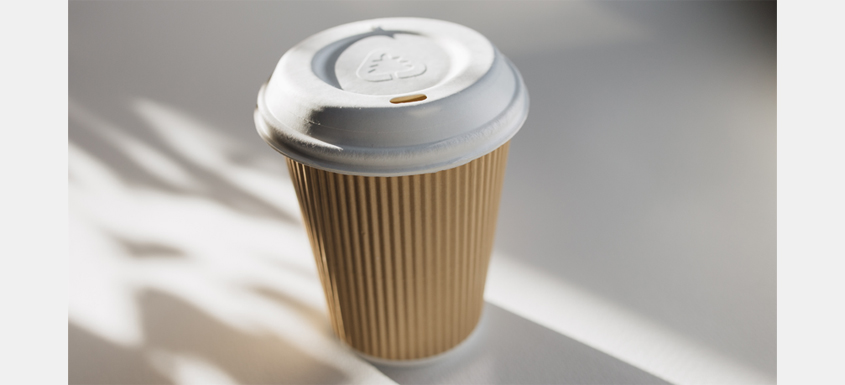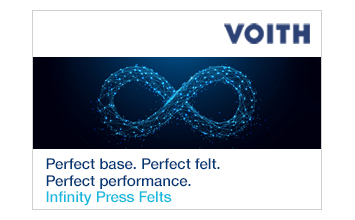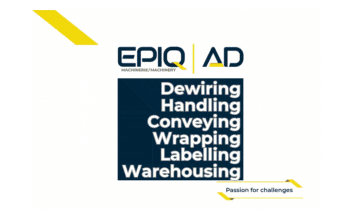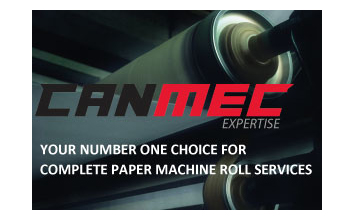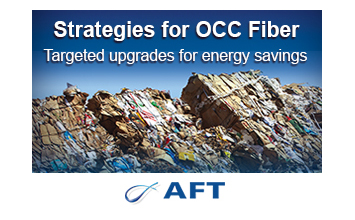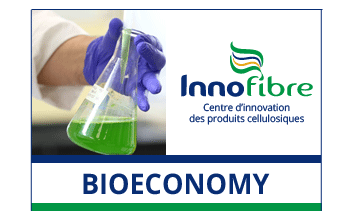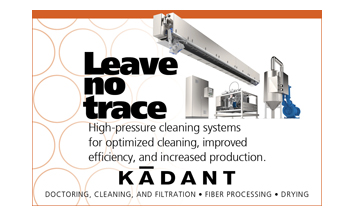Bowls, cutlery, cups – any packaging that is in contact with food – needs a barrier to prevent water and oil from leaking through.
Paper and molded fiber packaging have traditionally relied on a thin plastic film or the addition of fluorochemicals to hold out water and grease. Neither of these solutions is ideal, as plastic layers are not degradable and can be difficult to recycle. Fluorochemicals have been found to migrate into food and accumulate in our bodies, prompting them to be banned in many parts of the world. What is the answer, then, for transitioning to environmentally sustainable fiber-based packaging for food and beverages?
PulPac and HSMG have developed an innovative approach for water and oil barriers for PulPac’s Dry Molded Fiber technology. A thin, stretchable sheet of substrate applied with HSMG’s PROTĒAN® solution is layered onto the fiber mat as the article is formed. The heat and pressure of the forming process bonds the HSMG carrier sheet to the product. The result is a strong, recyclable, biodegradable non-fossil alternative to single use plastic that holds up to hot drinks.
HSMG and PulPac announced their collaboration to develop sustainable chemicals, barriers and materials for Dry Molded Fiber in 2021, and this year will first feature PROTĒAN® technology in a coffee lid for Sweden’s MAX Burgers quick service restaurant chain. Other Dry Molded Fiber applications such as hot cups lids and take-away items will follow and will be available for PulPac licensees.
Sebastian Roos, Chief Technology Officer at PulPac comments, “We are enthusiastic about the performance of the HSMG barrier technology platform. This solution is plant-based, plastic-free, biodegradable and recyclable, all important qualities to our customers and crucial for saving the planet from plastics. Our technology has pioneered fiber forming, making it possible to manufacture paper packaging without wasting valuable water resources or energy and significantly reducing CO2, at unit economy that is very competitive. We are fast approaching a tipping point where the single-use plastics items that can be replaced, will become obsolete in favor of competitive and truly sustainable alternatives.”
Jonathon Spender, Chief Technology Officer at HSMG comments, “PulPac’s Dry Molded Fiber technology is a good fit with HSMG’s barrier chemistry solutions. The PROTĒAN® carrier sheet integrates readily into the manufacturing process and is an ideal way to target the barrier to the function required. We are thrilled that PROTĒAN® technology will be available for licensing to PulPac customers.”
About PulPac
PulPac provides the packaging industry with a groundbreaking manufacturing technology for low-cost, high-performance fiber-based packaging and single-use products. By pioneering the technology of cellulose molding PulPac enables their customers to replace single-use plastics with a sustainable and cost competitive alternative globally.
For additional information about PulPac, please visit www.pulpac.com or follow us on social media.
About HSMG LLC
HSMG LLC, a Greentech Global Pte. Ltd. company, develops and licenses their patented additive and barrier coating platform technology, PROTĒAN®, to paper and packaging manufacturers and specialty chemical companies. They offer water-resistant and/or oil- and grease-resistant alternatives to plastic coatings and fluorochemicals in a broad range of cellulose-based single use products. To learn more, please visit: www.hsmgrp.com.
About Dry Molded Fiber
Dry Molded Fiber, invented and patented by PulPac, is a manufacturing technology designed for the circular economy. It leverages globally available, affordable, and renewable cellulose fibers to produce high performance fiber-based packaging and single-use products with highly competitive unit economics. Dry Molded Fiber also saves significant amounts of valuable water resources and energy, resulting in up to 80% lower CO2 footprint compared to alternatives. The process is up to ten times as efficient as conventional fiber molding invented over 100 years ago.
Source: PulPac



